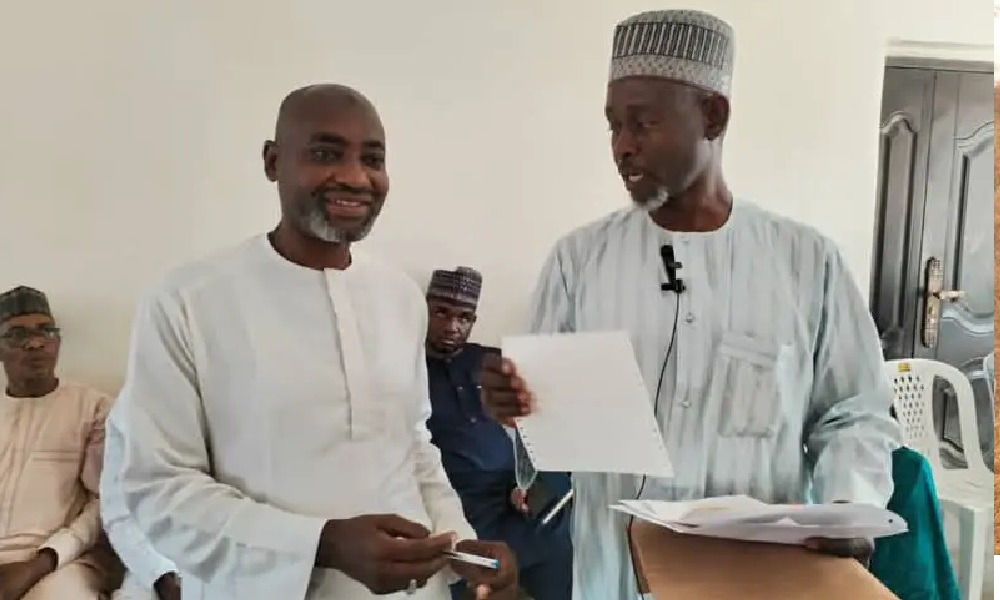News
Italian authorities demote prosecutor for lack of impartiality, fairness in OPL 245 proceedings

By Kayode Sanni-Arewa
The Italian prosecutor involved in the trial of Shell, Eni and others, in the controversial Oil Prospecting Licence (OPL) 245 case, Fabio De Pasquale, has been demoted by the country’s Superior Council of the Judiciary (CSM) for his role in the proceedings.
An Italian newspaper, Ilgiorno, reported that De Pasquale was demoted for “lack of impartiality and fairness” in the way he handled the prosecution at the Court of Milan.
Recall that in 2021, a former Minister of Justice and Attorney General of the Federation, Mohammed Adoke (SAN), had petitioned Italy’s Minister of Justice over the conduct of De Pasquale.
Adoke, through his lawyers, accused the prosecutors of unlawful acts of intimidation/threat to life, forgery of documents/evidence intended for unlawful interference with the administration and perversion of the course of justice.
The Italian was also said to have hidden critical evidence that would have exonerated the defendants and is facing a separate hearing over the allegation.
Adoke said the prosecutors acted “maliciously and unprofessionally” to his detriment despite the fact that he was not a direct party to the criminal prosecution and was not on trial before the Milanese court.
Eventually, the court discharged all persons and companies accused of fraud and bribery in the transaction.
De Pasquale, who was assistant prosecutor at the Court of Milan with semi-managerial prosecuting functions, was rejected by 23 of the 27 members of the CSM, including its Vice President, Fabio Pinelli, while four members abstained from voting.
“It is therefore demonstrated that De Pasquale lacks the prerequisites of impartiality and balance, having repeatedly exercised jurisdiction in a manner that was neither objective nor fair with respect to the parties as well as without a sense of proportion and without moderation,” the CSM resolved.
The judges opined that De Pasquale’s style projected “a negative prognostic judgment” on the possession of the prerequisites of impartiality and balance also for the purposes of confirmation in the magistrate in semi-managerial functions.
De Pasquale is on trial in Brescia for omission of official documents while disciplinary proceedings and an official transfer procedure due to “environmental incompatibility” have been opened against him at the CSM. Both proceedings against him are still ongoing.
By implication, the failure to confirm De Pasquale by the CSM means he will lose his role as deputy prosecutor and will return to being a simple substitute and will not be able to apply for further management positions in the future.
The judges of the Milan court said it was “incomprehensible” that the public prosecutor chose “not to file among the proceedings a document which contains extraordinary elements in favour of the defendants”.
De Pasquale who prides himself as an anti-corruption hunter had been looking to get Eni convicted over allegations of corporate fraud. The OPL 245 case provided him an opportunity to prosecute what transparency campaigners described as “the biggest corporate fraud in history”.
Adoke was not in trial in Italy, but the Economic and Financial Crimes Commission (EFCC), filed several cases against him in Nigeria and his name was constantly mentioned in the Milan court, although the court did not make any adverse pronouncement against him in its verdict.
One of the cases filed against Adoke was that he collected a $2 million bribe from the $1.1 billion paid to Malabu and bought a property in Abuja, an allegation he denied and for which he has been cleared.
But Adoke alleged that the prosecutor deliberately concealed his failed N300 million mortgage transaction with Unity Bank from the Milan court just to create the impression that it was a bribe.
He also alleged that an email purportedly sent by him from the account of a property company mentioned in the OPL 245 payments was forged, stressing that a phone conversation was stage-managed to implicate him.
News
Port Harcourt refinery: NNPCL disowns recruitment notice

The Nigerian National Petroleum Company Limited (NNPCL) has disclaimed a purported recruitment announcement for the Port Harcourt Refining Company (PHRC), warning the public against falling victim to fraudulent schemes.
In a statement released on its official X handle (formerly Twitter) on Friday evening, the oil company clarified that no separate recruitment process was ongoing for PHRC beyond the one initiated in 2024.
The statement, titled “NNPC Ltd Disclaims Purported Recruitment Announcement for PHRC,” was signed by the Chief Corporate Communications Officer, Olufemi Soneye.
“The Nigerian National Petroleum Company Limited (NNPC Ltd) has urged members of the public to discountenance purported recruitment announcement for the Port Harcourt Refining Company (PHRC) circulating in certain online platforms,” the statement read.
NNPC Ltd further explained that its recruitment process, which commenced last year, covered all its subsidiaries, including PHRC. The company noted that candidates who passed the Computer-Based Aptitude Test were proceeding to the interview stage.
“The purported recruitment link being circulated in various online platforms is the handiwork of fraudsters who are keen on taking advantage of the newly revamped Port Harcourt Refinery to fleece unsuspecting members of the public with a phantom recruitment announcement. We, therefore, call on members of the public to be wary of the ploy and not fall for it,” the statement warned.
News
Hajj 2023 refund: Pilgrims from Adamawa get N61,080 each

The Adamawa State Muslims Pilgrims Welfare Commission has disbursed N61,080 to each of the 2023 pilgrims from the state over poor services rendered to them by the service providers while in Saudi Arabia.
The executive secretary of the pilgrims commission, Malam Abubakar Salihu, disbursed the refunded money, saying it was a step of accountability.
The disbursement was paid into the account of the pilgrims or, for those without account numbers, through the local government schedule officers of the 21 local governments of the state.
Responding on behalf of the beneficiaries, Alhaji Shuaibu Musa Mele appreciated the commission for ensuring that each pilgrim gets his rightful refund.
The Kingdom of Saudi Arabia had earlier refunded money through the National Hajj Commission of Nigeria, for sharing among the 36 states of the country.
News
Security operatives destroy Bello Turji’s food storage facility

A school building in Fakai village, reportedly used as a food storage facility by the notorious bandit leader Bello Turji, has been destroyed.
The facility, which had been stocked with large quantities of food supplies, was completely razed, leaving the structure in ruins.
According to local sources, the school was repurposed by the bandits to support their operations in the region.
It served as a key logistical hub for storing essential supplies, ensuring the group’s ability to sustain its activities over time.
The destruction of the stockpile is seen as a major setback for Bello Turji’s network. By eliminating a critical resource hub, the operation is expected to disrupt the group’s supply chain and hinder their ability to operate effectively in the area.
Counter-terrorism expert Zagazola Makama reported that the incident underscores ongoing efforts to counter the influence and operations of bandit groups in the region.
Residents of Fakai village and surrounding areas hope this effort signals further strides toward restoring peace and security.
-

 News21 hours ago
News21 hours agoJust in: Again , Petrol Price Increases To N1150 Per Litre Nationwide
-

 News21 hours ago
News21 hours agoSad: Ex-Delta First Lady, former beauty queen, dies in London hospital
-

 News21 hours ago
News21 hours agoUK Court Jails 35-yr-old Nigerian 10 Yrs After Brutal R3pe Of Woman In Nottingham
-

 News21 hours ago
News21 hours agoSEE Dollar (USD) to Naira Black Market Rate Today January 18, 2025 Aboki
-

 News12 hours ago
News12 hours agoJust in: Gov Soludo reveals those behind kidnapping in SE, says it’s now a lucrative biz
-

 News17 hours ago
News17 hours agoPolice declare Ex-President Jonathan’s aide , Reno Omokri wanted
-

 News14 hours ago
News14 hours agoSad! Train Crushes Man To D3ath In Oshodi, Lagos
-

 Politics14 hours ago
Politics14 hours agoJust in: Senator Nwoko reportedly dumps PDP for APC








